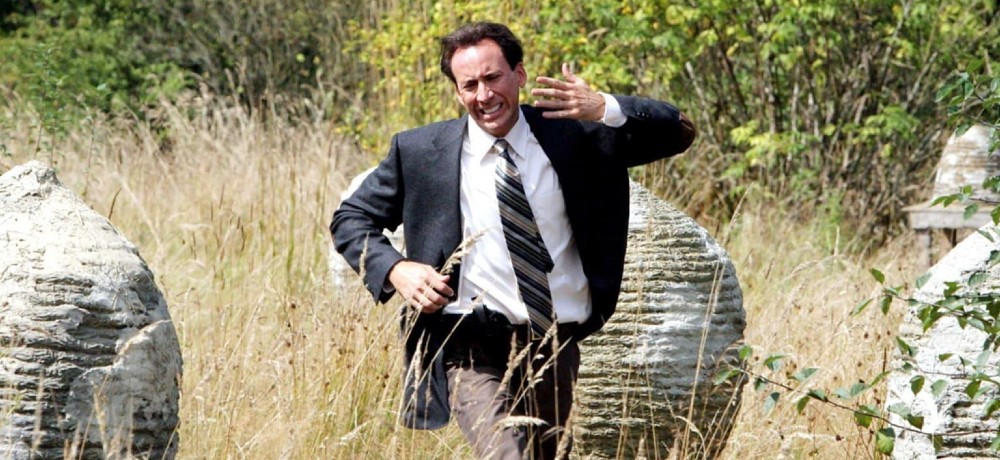Did a brain tumor make Luke Fallon kill the commanding officer he once served under?
Yes and no. Fallon’s claim that he blacked out during the murder felt contrived, but he did kill Lockett because he blamed his former superior for his health issues.
Law & Order Season 22 Episode 8 took on many issues, many of which related to the military expectation that soldiers follow orders. It was a complex issue that couldn’t be fully addressed in only an hour.
Lockett was known as a nice guy who tried to help others. Still, he made enemies both in the military and civilian life because he tended to follow orders unquestioningly.
One of his soldiers killed him after developing brain cancer, but he could have just as easily been murdered by a co-worker after he obeyed his CEO’s directive to inflate earnings on a loan application.
The CFO rightly said that was fraud and confronted him about it, while the CEO admitted he’d given Lockett this task because he knew he’d been in the Army and would do what he was told.
CEO: Projections are made up numbers. We didn’t do anything wrong.
Shaw: Then why cut out the CFO?
CEO: She has no financial imagination.
Shaw: And Alex did?
CEO: He followed orders. He was a former soldier so I knew he’d do what he was told.
Lockett wasn’t out to defraud anyone, but he wouldn’t stand up to his boss, just like he wouldn’t cease using the burn pits if his superiors told him not to. He died because he followed the chain of command to the letter even when he knew it was killing his men.
This incident raised a question that viewers will have to wrestle with: when, if ever, does it cease to be moral to follow orders?
It’s easier, to an extent, in civilian life than military life, but what would have happened if Lockett hadn’t gone along with the CEO’s inflating earnings on loan applications? It’s difficult to say what type of pressure Lockett would have been under and what the personal cost of him doing such a thing would have been.
That doesn’t mean it wasn’t the right thing to do, but good people can make wrong choices for understandable reasons.
There are times when it is imperative not to follow orders (Nuremberg trials, anyone?), but it wasn’t clear whether the inflated earnings scenario was one of them. As for the burn pits, was there anything Lockett could have done besides quit over this issue?
He’d asked the Army to stop using burn pits and was told No. If he had disobeyed, he probably would have lost his command and been dishonorably discharged. A new leader would have been put in his place that would continue using the burn pits.
Plus, what options were there? He had to dispose of medical waste somehow, and he couldn’t build incinerators by himself.
Fallon’s defense wasn’t great, either. He considered anything he did while following orders moral, but it never occurred to him that his commander could also have orders from above.
It didn’t help that Lockett never shared with him that he had tried and failed to do anything about the burn pits, but Fallon should know how Army hierarchy works. It was unlikely that Lockett had complete autonomy and was solely responsible for decisions involving burn pits.
I’m not a fan of defenses involving brain tumors or mental illness “making” someone do something. These things are exceedingly rare, and we already had a case involving a brain disease defense not that long ago.
TV shows often misuse insanity defenses in ways that contribute to stereotypes about mental illness causing violence. Law & Order didn’t do that, but Fallon did.
He latched onto this defense when his other arguments weren’t working. I agreed with McCoy that this defense was not credible and that the DA’s office needed to show that he was trying to manipulate the jury.
The report demonstrating that he shot a civilian before was strong evidence — if it was true. Despite McCoy’s insistence that there was no proof it was false, using it would have been a terrible idea.
The defense only had to make the jury doubt its veracity to render the report useless. Considering Fallon’s claims that he would only kill if told to, it would be fairly easy to suggest that the Army ordered him to kill those civilians and then kicked him out to cover up their screw-up.
Getting Fallon to realize he’d been wrong about Lockett was a better strategy. That couldn’t easily be undone by the defense attorney poking holes in a story that may be inaccurate.
The unit’s health issues because of the burn pit exposure were all tragic. It was terrible that Fallon and his friend suffered from horrible diseases and that the VA couldn’t help Shane because of his dishonorable discharge.
This story touched upon a bunch of real issues and asked questions about whether the Army used the pits while knowing it could harm soldiers.
There wasn’t enough time to delve into all these issues, but the story could lead viewers to have interesting conversations.
What did you think, Law & Order fanatics? Hit the big, blue SHOW COMMENTS button and let us know. And don’t forget you can watch Law & Order online while waiting for the fall finale to air.
Law & Order airs on NBC on Thursdays at 8 PM EST / PST. The fall finale airs on December 7, 2022.
Jack Ori is a senior staff writer for TV Fanatic. His debut young adult novel, Reinventing Hannah, is available on Amazon. Follow him on Twitter.

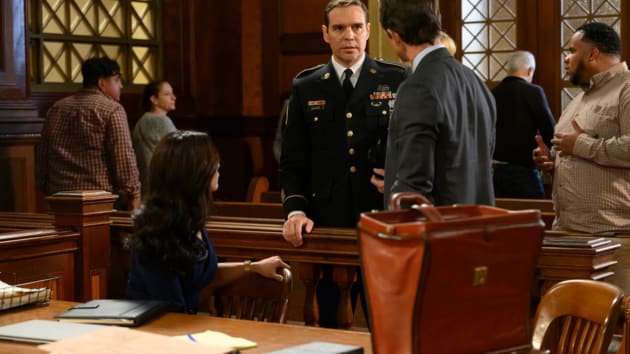

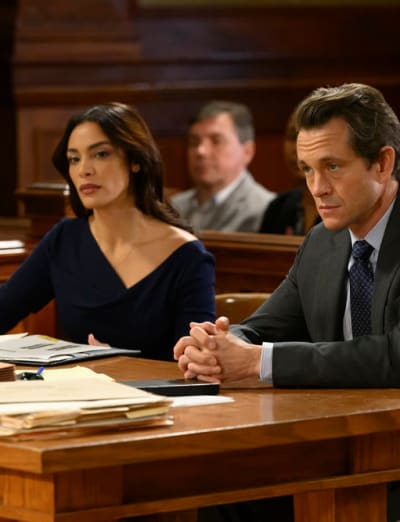
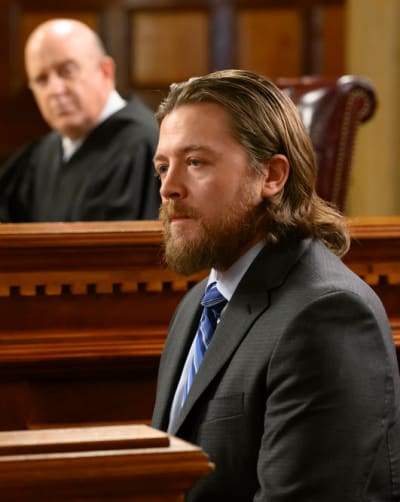
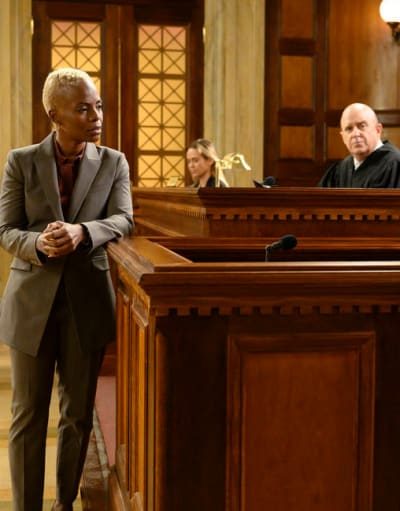








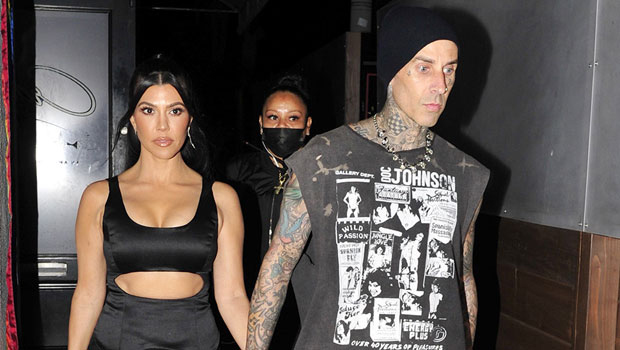




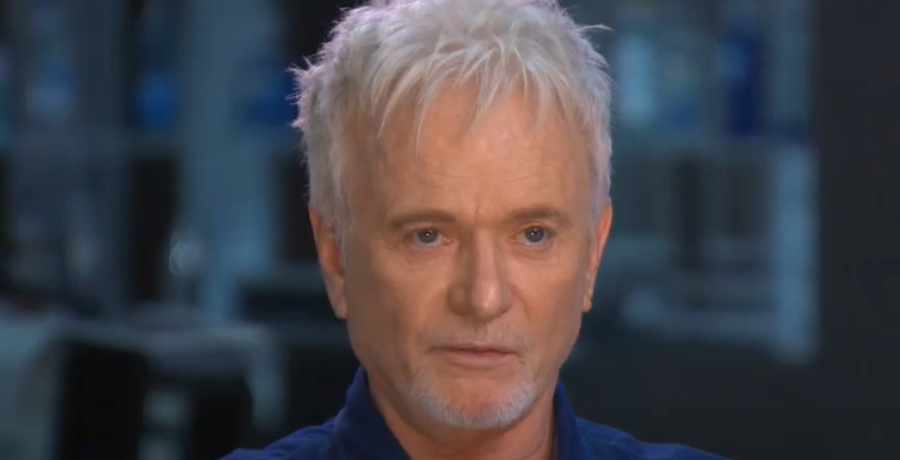


:quality(85):upscale()/2022/07/31/090/n/1922564/8c33802562e727e487cee1.31368987_.png)

